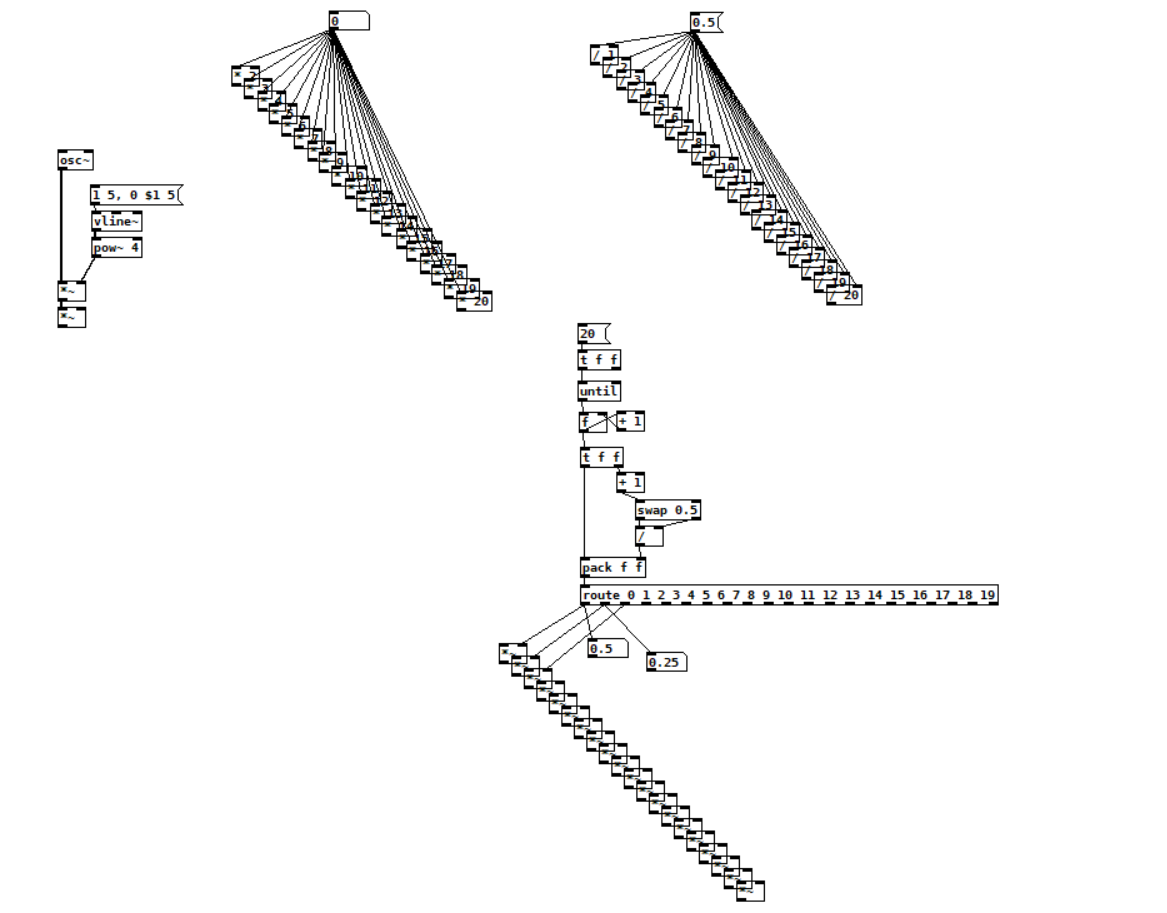Speaking of efficiency: There's ChucK code that does spectral analysis and outputs a list of peak frequencies and their amplitudes in this format:
[ 4072.47, 1 ], [ 5593.25, 0.304494 ], [ 4196.28, 0.66348 ], [ 5536.73, 0.726691 ], [ 4382.01, 0.527432 ], [ 5380.61, 0.722193 ], [ 4766.91, 0.287018 ], [ 7073.66, 0.620362 ], [ 5334.85, 0.513121 ], [ 5490.97, 0.267715 ], [ 5046.84, 0.342458 ], [ 7006.37, 0.657309 ], [ 6629.53, 0.451136 ], [ 6939.07, 0.525416 ], [ 9520.37, 0.254127 ], [ 9388.48, 0.253434 ], [ 7396.66, 0.225276 ], [ 9582.28, 0.259454 ], [ 8990.11, 0.168725 ], [ 9703.4, 0.247069 ]
which you can easily click and paste into another ChucK script that will resynthesis a sound with that spectrum.
If I wanted to use this data in another text-based language, I could make or adapt a parsing script that removes the brackets and sends the left value into a frequency array and the right value into an amplitude array. But in PD, even if I use abstractions or [clone], I would still have to either manually go in and cut the individual values and paste them into a message box or into an abstraction as a creation argument. I suppose if I could convert them into two lists, one for frequency and one for amplitude, eg. I could send them into a [clone] easily, eg.
[4072.47, 5593.25, 4196.28, etc.(
|
[next $1(
|
[clone]
I've made a parsing script before to read parameter list txt-files into C#, so I'd have to look into how to generate .txt files. So the process would be
- Get ChucK analysis data.
- Paste it into algorithm to generate two txt-files in the proper format.
- Copy and paste content of those files into PD message boxes.
This would work for testing in PD, but since hvcc isn't compatible with [clone], I'd have to wire up a route system into regular abstractions.
Any better ideas for how to do this? Is there a way to do the parsing in PD itself?
(I know @Jona mentioned ofelia. So the question is what's more work and what has more payoff. Doing it the way I described or learning ofelia?)





